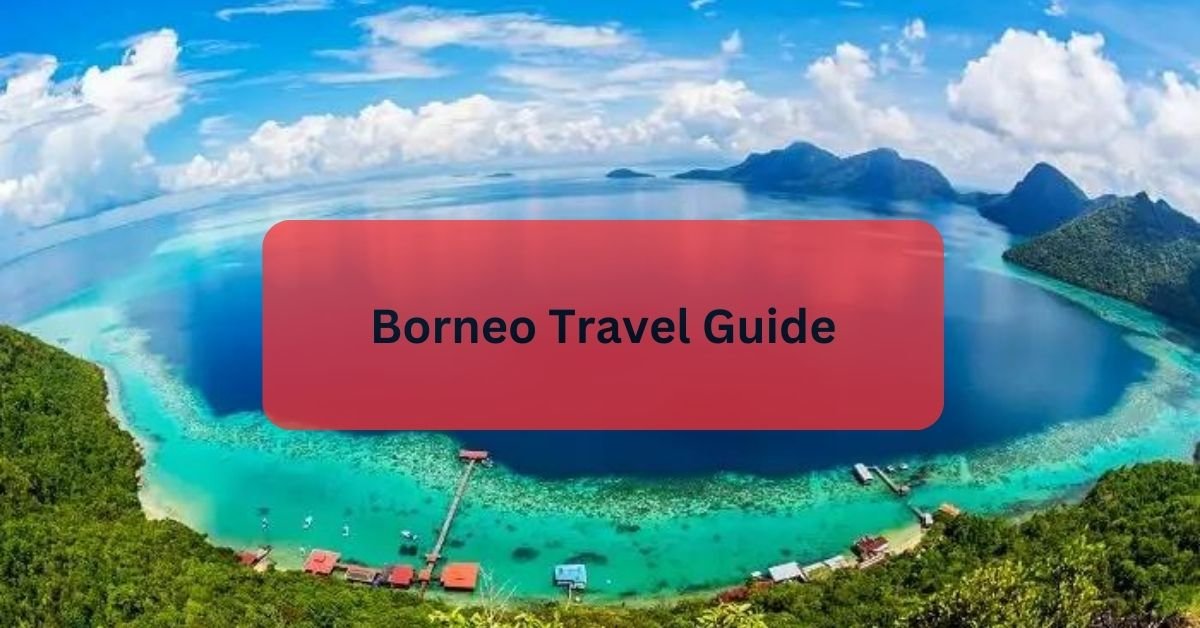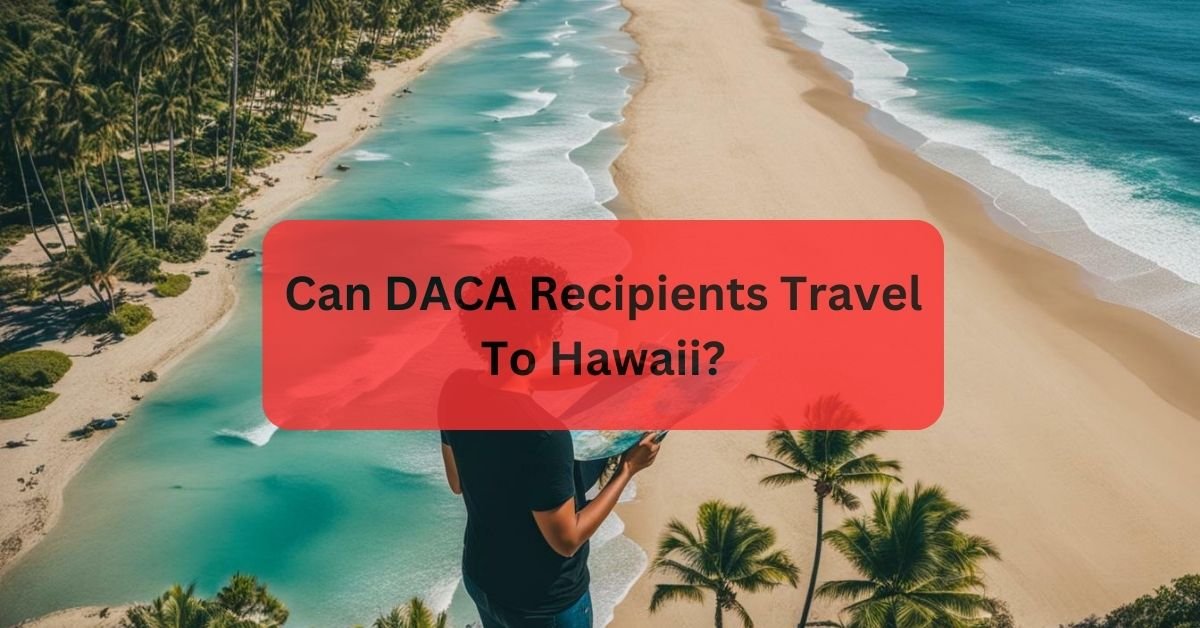Borneo beckons with its untamed landscapes, rich biodiversity, and vibrant cultures. From lush rainforests teeming with exotic wildlife to pristine beaches lapped by crystal-clear waters, Borneo offers a tapestry of experiences for every traveler.
This comprehensive guide is your key to unlocking the wonders of this enchanting island, ensuring an experience filled with adventure, discovery, and unforgettable memories.
Overview Of Major Airports And Transportation Options – Check It!
Major Airports:
- Kota Kinabalu International Airport (BKI): Located in Sabah, Malaysia, BKI is one of the busiest airports in Borneo and serves as a major gateway for international and domestic flights.
- Kuching International Airport (KCH): Situated in Sarawak, Malaysia, KCH offers domestic and limited international flights, primarily to neighboring countries.
- Brunei International Airport (BWN): Serving the capital city of Bandar Seri Begawan, BWN is the main airport in Brunei Darussalam, offering connections to regional and international destinations.
- Juanda International Airport (SUB): Located in Surabaya, Indonesia, SUB provides access to Borneo via flights to Kalimantan.
Transportation Options:
- Flights: The most convenient way to reach Borneo is by air. Major airlines such as Malaysia Airlines, AirAsia, Royal Brunei Airlines, and Garuda Indonesia operate flights to Borneo from key cities in Asia and beyond.
- Ferries: Ferries connect Borneo with nearby islands and mainland destinations. Popular ferry routes include those between Kota Kinabalu and Labuan, as well as between mainland Malaysia and Labuan.
- Overland Travel: Travelers can also reach Borneo via overland routes, including buses and trains from neighboring regions such as Sabah and Sarawak in Malaysia, and from Kalimantan in Indonesia.
Tips for Booking Flights:
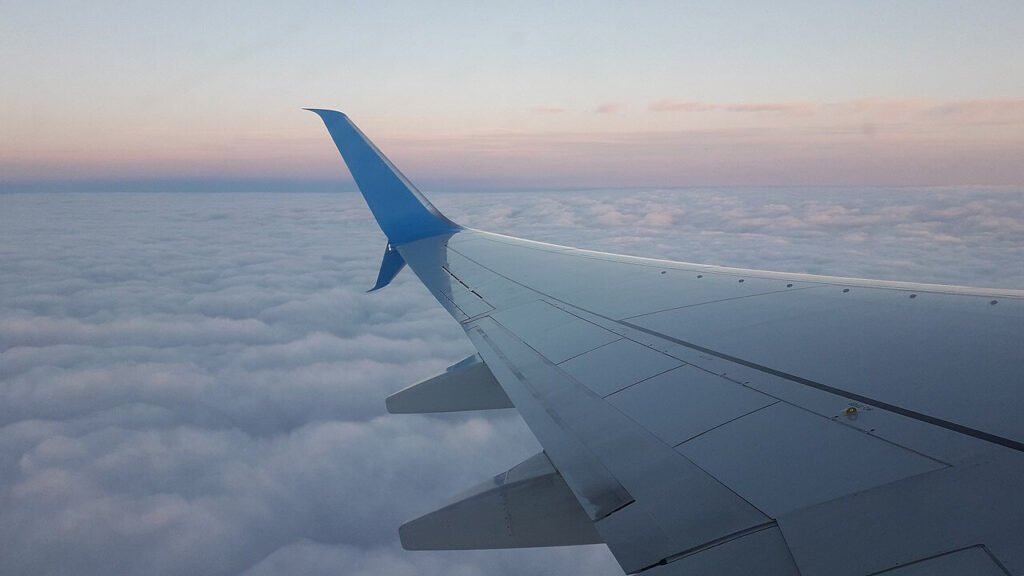
- Flexibility: Remain flexible with travel dates to find the best deals. Midweek flights and off-peak seasons often offer lower fares.
- Comparison Websites: Utilize flight comparison websites such as Skyscanner, Google Flights, and Kayak to compare prices across different airlines and booking platforms.
- Set Price Alerts: Sign up for price alerts to receive notifications when flight prices drop for your desired route.
- Consider Layovers: Opting for flights with layovers can sometimes result in significant cost savings.
Visa Requirements and Entry Regulations:
- Malaysian Borneo (Sabah & Sarawak): Citizens of many countries are eligible for visa-free entry or visa-on-arrival for stays of up to 90 days. However, it’s essential to check specific visa requirements based on nationality.
- Brunei: Visa requirements vary depending on the traveler’s nationality. Some nationalities are eligible for visa-free entry for short stays, while others may require a visa in advance.
- Indonesian Borneo (Kalimantan): Similar to other parts of Indonesia, visa requirements for Kalimantan vary depending on nationality. Many nationalities are eligible for visa-free entry or visa-on-arrival for short stays.
Best Time To Visit Borneo – Here To Know!
The weather in Borneo fluctuates between a wet season from October to March and a dry season from April to September.
During the wet season, heavy rainfall is common, particularly in the afternoons and evenings, while the dry season brings more stable weather conditions with sunny days and occasional brief showers.
For wildlife viewing, the dry season, especially from April to September, is optimal as animals gather around watering holes and rivers.
Diving enthusiasts should consider visiting during the dry season (April to October) for clearer visibility and calmer seas.
Cultural festivals, such as the Gawai Dayak festival in Sarawak and the Kaamatan Harvest Festival in Sabah, are typically held during specific months, offering visitors a chance to immerse themselves in local traditions.
Top Destinations In Borneo To Visit – You Should Know!
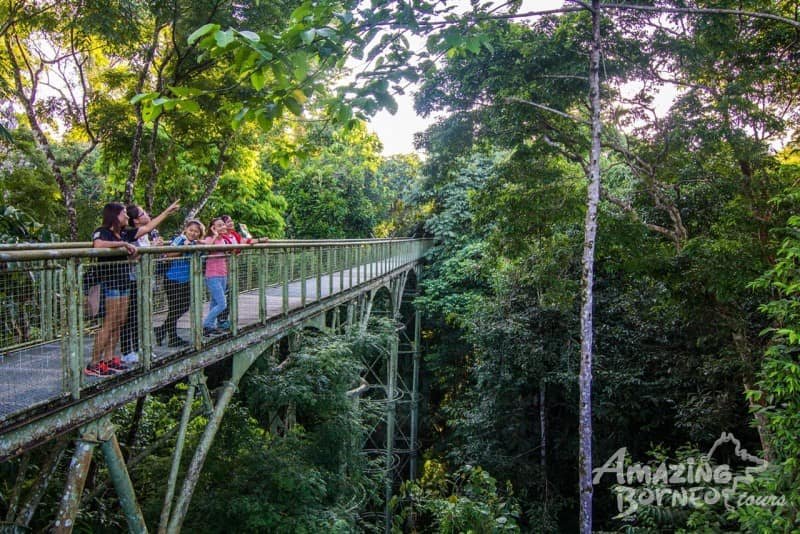
Kinabalu National Park:
Kinabalu National Park, a UNESCO World Heritage Site, is renowned for Mount Kinabalu, the highest peak in Southeast Asia.
The park boasts diverse ecosystems, including tropical rainforests, alpine meadows, and montane forests, harboring a rich variety of flora and fauna.
Visitors can embark on hiking trails, explore botanical gardens, and marvel at the stunning landscapes of this natural gem.
Sepilok Orangutan Rehabilitation Centre:
In Sabah, there’s a place called the Sepilok Orangutan Rehabilitation Centre. They take care of orangutans who are hurt or don’t have families anymore, helping them get better and protecting them.
Visitors can observe these charismatic primates up close as they roam freely in their natural habitat. The center also offers educational opportunities to learn about orangutan conservation efforts and the challenges they face in the wild.
Mulu Caves:
Mulu National Park, another UNESCO World Heritage Site, is home to some of the world’s most extensive cave systems. The park’s crown jewel is the Sarawak Chamber, the largest cave chamber by area.
Visitors can explore limestone caves, marvel at impressive stalactites and stalagmites, and witness the breathtaking spectacle of millions of bats emerging from the caves at dusk.
Bako National Park:
Bako National Park, the oldest national park in Sarawak, is renowned for its biodiversity and stunning landscapes. The park features a network of hiking trails that lead through diverse habitats, including mangrove swamps, dipterocarp forests, and coastal ecosystems.
Visitors have the chance to spot a variety of wildlife, including proboscis monkeys, long-tailed macaques, and endemic bird species.
Sultan Omar Ali Saifuddin Mosque (Brunei):
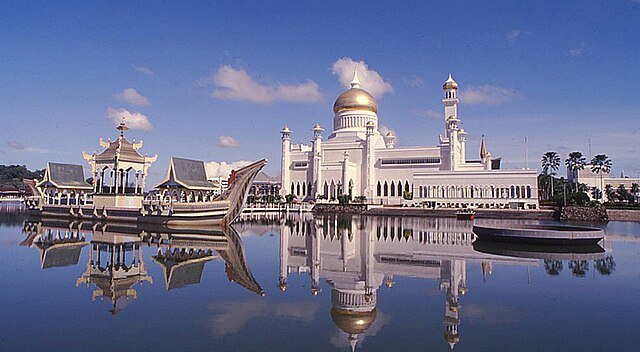
Situated in the capital city of Bandar Seri Begawan, the Sultan Omar Ali Saifuddin Mosque is a magnificent architectural masterpiece.
The mosque’s golden dome and marble minarets dominate the city skyline, creating a stunning backdrop against the Brunei River.
Visitors can admire the mosque’s intricate design, stroll through its lush gardens, and experience the tranquility of this sacred site.
Tanjung Puting National Park (Kalimantan):
Tanjung Puting National Park, located in Kalimantan, Indonesian Borneo, is famous for its orangutan conservation efforts and pristine rainforest habitats.
Visitors can embark on river cruises along the Sekonyer River, where they can spot wild orangutans, proboscis monkeys, and a myriad of bird species.
The park also offers opportunities for jungle trekking, wildlife spotting, and immersive experiences in the heart of Borneo’s wilderness.
Read: Black Travel Guide Magazine – Exploring The World!
Wildlife Encounters & Outdoor Adventures – Let’s See!
| Wildlife Encounters | Outdoor Adventures |
| Orangutan Watching | Jungle Trekking |
| Proboscis Monkey Sightings | River Cruises |
| Pygmy Elephant Spotting | Scuba Diving |
| Bird Watching | Snorkeling |
| Turtle Nesting Observations | Cave Exploration |
| Crocodile Spotting | Canopy Walks |
| Dolphin Watching | White Water Rafting |
| Whale Shark Encounters | Mountain Climbing |
| Gibbon and Macaque Encounters | Zip-lining |
| Night Safari Tours | Cycling Trails |
Cultural Immersion Of Borneo Travel – Check It Out!
Indigenous Cultures:
Borneo is home to a rich tapestry of indigenous cultures, each with its own unique traditions, languages, and customs. Visitors have the opportunity to immerse themselves in the fascinating way of life of the various indigenous communities that call Borneo home.
From the Iban longhouses of Sarawak to the traditional villages of the Kadazan-Dusun in Sabah, cultural immersion experiences offer insights into age-old traditions, rituals, and craftsmanship.
Traditional Festivals:
Throughout the year, Borneo comes alive with vibrant festivals that celebrate its diverse cultural heritage. One of the most renowned festivals is the Gawai Dayak in Sarawak, which honors the indigenous Dayak communities and marks the rice harvest season with traditional music, dance, and feasting.
Similarly, the Kaamatan Harvest Festival in Sabah showcases the rich agricultural heritage of the Kadazan-Dusun and Murut ethnic groups through cultural performances, beauty pageants, and culinary delights.
Culinary Experiences:
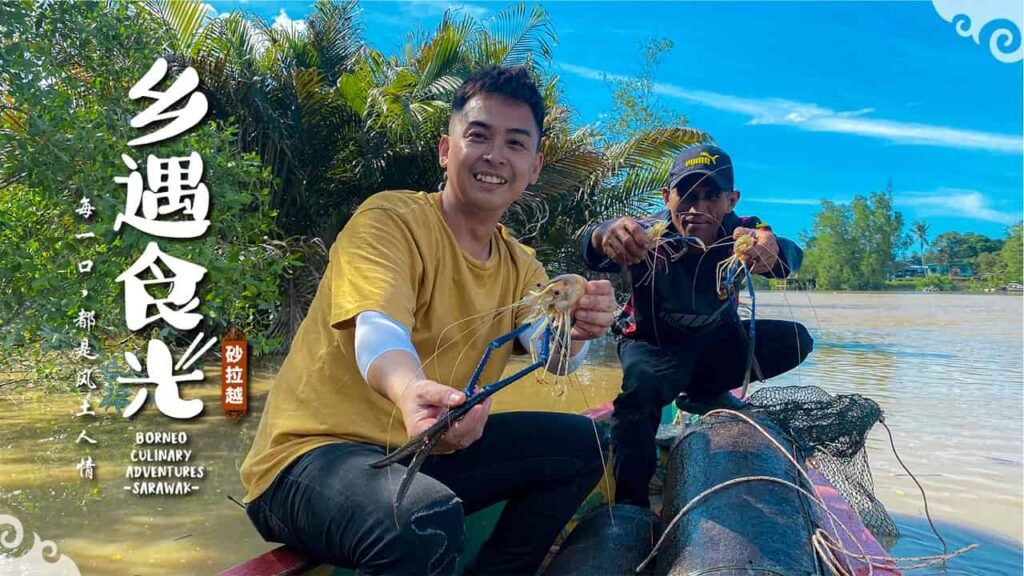
Food plays a central role in Borneo’s culture, reflecting the island’s diverse ethnic influences and rich culinary traditions. Visitors can indulge in a gastronomic adventure by sampling a variety of local delicacies, ranging from Sarawak laksa and Sabah seafood to Brunei’s royal dishes.
Exploring bustling markets, street food stalls, and traditional eateries provides opportunities to savor the authentic flavors of Borneo and engage with local vendors and chefs.
Arts and Handicrafts:
Borneo boasts a vibrant arts scene, with traditional crafts such as weaving, pottery, and woodcarving passed down through generations.
Visitors can witness skilled artisans at work, creating intricate patterns and designs that are reflective of Borneo’s natural beauty and cultural heritage.
Shopping for souvenirs and handicrafts at local markets and artisan workshops not only supports local communities but also allows travelers to take home a piece of Borneo’s artistic legacy.
Cultural Performances:
From traditional music and dance performances to storytelling and cultural demonstrations, Borneo offers a myriad of opportunities to experience its rich artistic heritage.
Visitors can attend cultural shows and performances that showcase indigenous music instruments like the shape and gong, as well as mesmerizing dances that depict ancient myths, legends, and rituals.
These immersive experiences provide insights into the soulful rhythms and vibrant traditions of Borneo’s diverse cultural mosaic.
Homestay Experiences:
For a truly authentic cultural immersion, visitors can opt for homestay experiences with local communities in Borneo. Staying with host families allows travelers to participate in daily activities, learn traditional skills, and forge meaningful connections with locals.
Whether it’s joining in harvest rituals, cooking traditional meals together, or sharing stories around the fireplace, homestay experiences offer genuine insights into the warmth and hospitality of Borneo’s people.
Practical Tips And Advice For Borneo Travel – Read It Now!
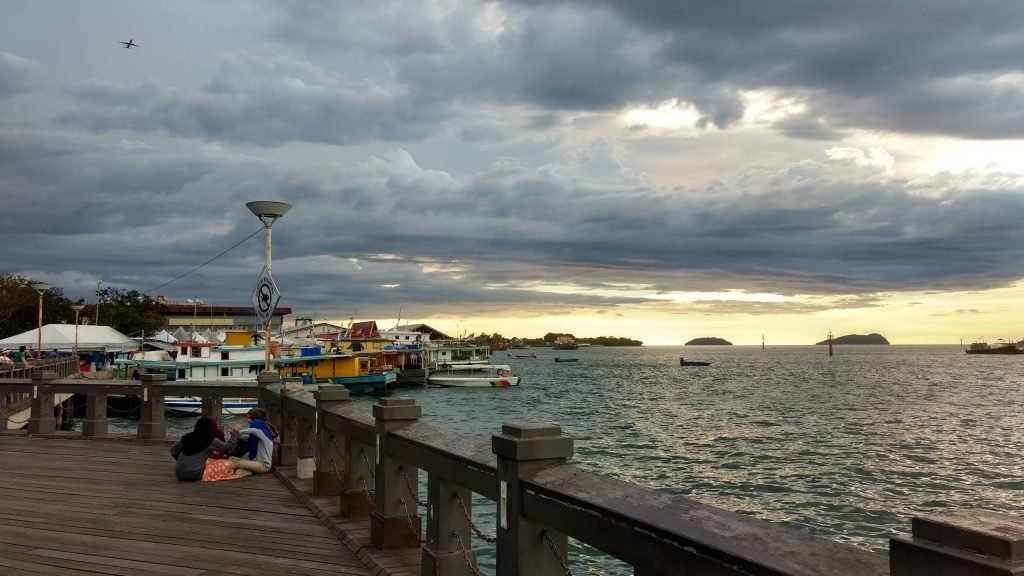
Packing Essentials:
- Lightweight and breathable clothing suitable for tropical weather.
- Bring sunscreen, a hat, and sunglasses to shield yourself from the sun.
- Insect repellent to prevent mosquito bites.
- Hiking shoes or sturdy sandals for outdoor activities.
- Waterproof gear and umbrella for rainy days.
Health and Safety:
- Obtain necessary vaccinations before traveling and carry a copy of your vaccination records.
- To stay healthy, drink bottled or purified water to avoid getting sick from the water.
- Apply sunscreen regularly and stay hydrated, especially during outdoor activities.
- Be cautious of wildlife encounters and follow safety guidelines provided by tour operators.
Money Matters:
- Carry sufficient cash in local currency (Malaysian Ringgit or Brunei Dollar) for small purchases and transactions.
- ATMs are available in major cities and towns, but inform your bank of your travel plans to avoid card issues.
- Credit cards are widely accepted in hotels, restaurants, and larger establishments, but cash may be required in remote areas.
Communication:
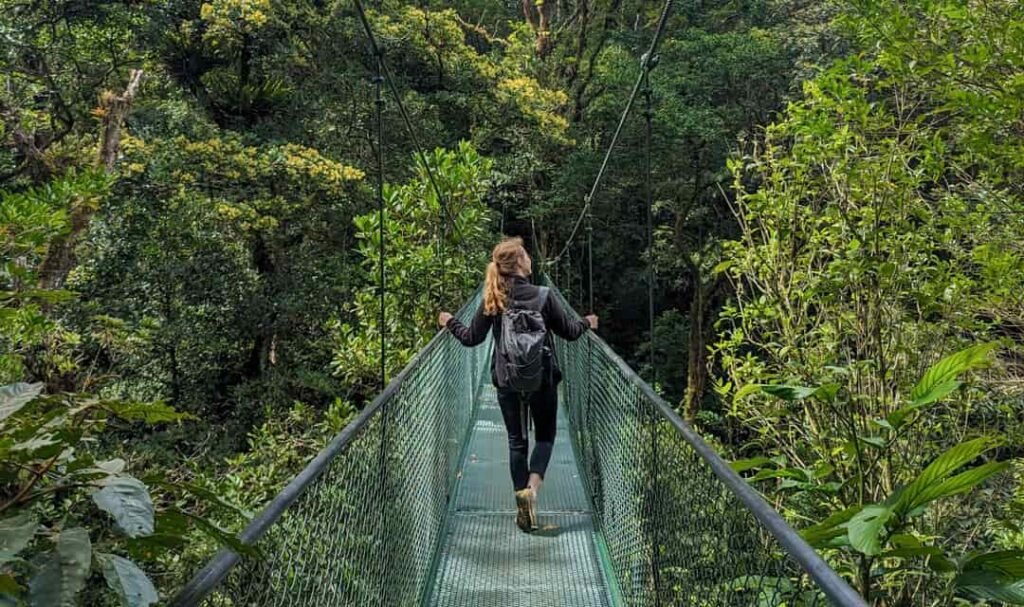
- English is widely spoken in Borneo, especially in tourist areas, but learning a few basic phrases in Malay or local dialects can be helpful.
- Purchase a local SIM card for access to mobile data and communication services.
- Wi-Fi is available in many hotels, cafes, and public areas, but connectivity may vary in remote locations.
Cultural Etiquette:
- Respect local customs and traditions, especially when visiting religious sites and indigenous communities.
- Dress modestly when entering places of worship, and remove shoes before entering mosques and temples.
- Ask for permission before taking photos of people, especially indigenous communities.
Transportation:
- Utilize reputable taxi services or ride-sharing apps for transportation within cities.
- Consider renting a car for flexibility in exploring remote areas, but be aware of road conditions and driving regulations.
- Public transportation options such as buses and ferries are available for intercity travel, but schedules may be limited in rural areas.
Travel Insurance:
- Purchase comprehensive travel insurance to cover medical emergencies, trip cancellations, and unexpected incidents.
- Check the policy for coverage in remote areas and adventurous activities such as hiking and diving.
- Make sure you have a copy of your insurance papers and emergency phone numbers with you all the time.
Read: Which Travel Guide Is The Most Reliable? – A Simple Guide!
Frequently Asked Questions:
1. What is the currency used in Borneo?
The currency used in Borneo varies depending on the region. In Malaysia (Sabah and Sarawak), the currency is the Malaysian Ringgit (MYR). In Brunei, they use the Brunei Dollar (BND) as their money. In Indonesian Borneo (Kalimantan), the currency is the Indonesian Rupiah (IDR).
2. Do I need to get vaccinated before traveling to Borneo?
It is recommended to consult with your healthcare provider or travel clinic for advice on vaccinations required for traveling to Borneo. Common vaccinations that people get are for diseases like hepatitis A and B, typhoid, and tetanus.
3. What are the main transportation options in Borneo?
Major transportation options in Borneo include flights, ferries, buses, and taxis. Domestic flights connect major cities and towns, while ferries provide access to islands and coastal areas. Buses are commonly used for intercity travel, and taxis or ride-sharing services are available in urban areas.
4. When is the best time to visit Borneo for wildlife viewing?
The dry season (April to September) is the best time to visit Borneo for wildlife viewing, as animals are more active and visible during this period. However, specific wildlife encounters may vary depending on the region and habitat.
5. Are there any cultural festivals in Borneo that I should attend?
Yes, Borneo hosts a variety of cultural festivals throughout the year, including the Gawai Dayak festival in Sarawak, the Kaamatan Harvest Festival in Sabah, and the Sultan’s Birthday celebrations in Brunei. These festivals offer unique insights into the island’s diverse cultural heritage.
6. Is it safe to drink tap water in Borneo?
It is recommended to drink bottled or purified water in Borneo to avoid waterborne illnesses. Tap water may not be safe for consumption, especially in rural areas.
7. What are some must-visit attractions in Borneo for outdoor adventures?
Must-visit attractions for outdoor adventures in Borneo include Kinabalu National Park for hiking and mountain climbing, Sipadan Island for world-class diving, and Tanjung Puting National Park for river cruises and wildlife encounters.
8. Do I need a visa to visit Borneo?
Visa requirements for visiting Borneo vary depending on your nationality and the specific region you plan to visit. Some nationalities may be eligible for visa-free entry or visa-on-arrival, while others may require a visa in advance. It is essential to check visa requirements before traveling.
9. What languages are spoken in Borneo?
The main languages spoken in Borneo are Malay, English, and various indigenous languages and dialects. English is widely spoken, especially in tourist areas, making it relatively easy for travelers to communicate.
10. What are some ethical considerations when participating in wildlife tourism in Borneo?
When participating in wildlife tourism activities in Borneo, it is essential to prioritize responsible and ethical practices. This includes respecting wildlife habitats, avoiding activities that disrupt natural behavior, and supporting conservation efforts through responsible tourism operators and organizations.
Conclusion:
Borneo, with its unparalleled natural beauty and cultural richness, offers a truly immersive travel experience for adventurers and nature enthusiasts alike.
From the mist-shrouded peaks of Kinabalu National Park to the vibrant underwater world of Sipadan Island, the island captivates visitors with its diverse landscapes and abundant biodiversity.
Read:
